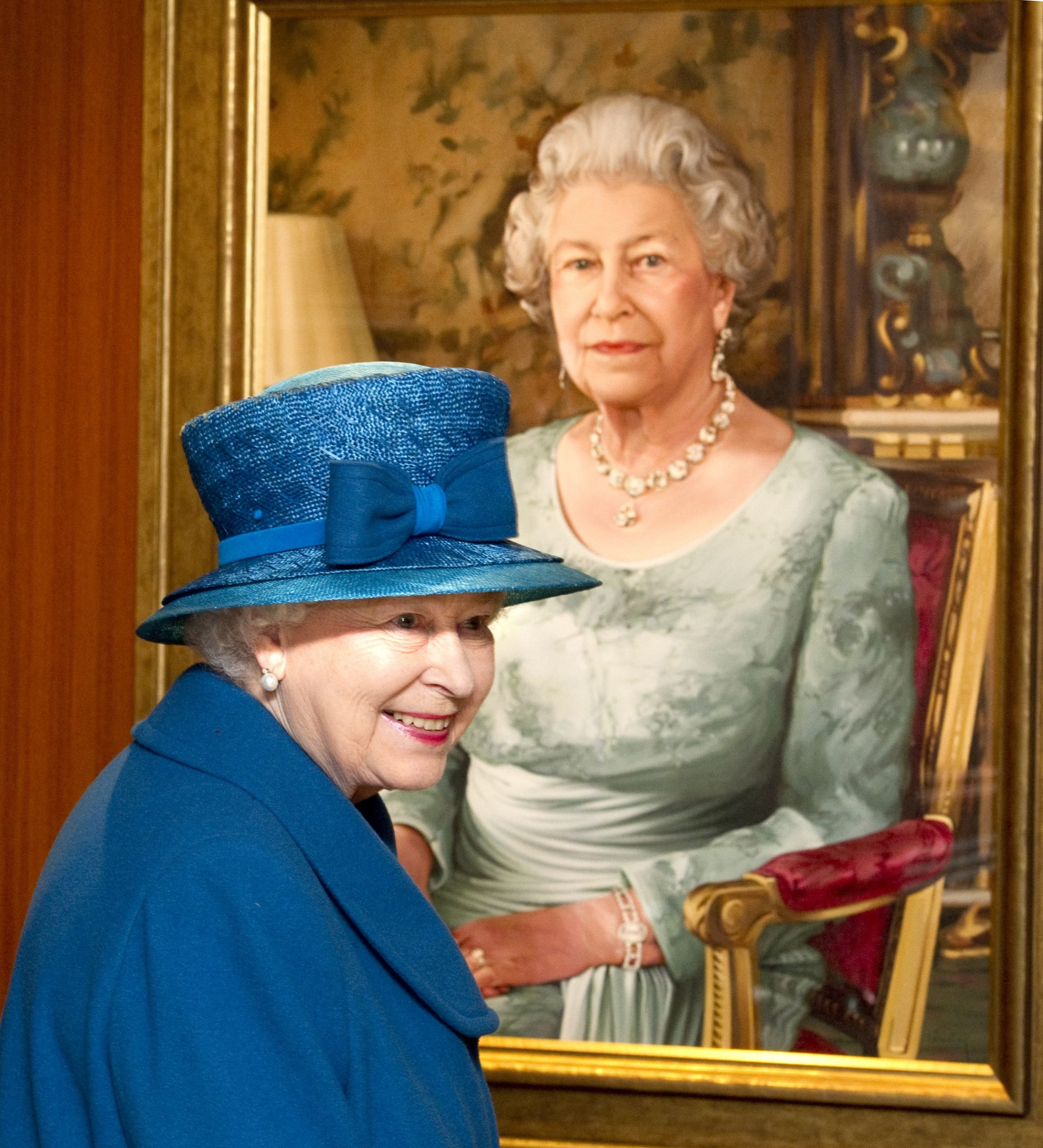
With news of Queen Elizabeth II’s death on Thursday, September 8, an outpouring of responses have come in from all corners of the world.
Our little corner of the art trade is no different.
Anna Somers Cocks, founder of the Art Newspaper, wrote in an email to Artnet News that she felt like she lost a relative.
“She was like a member of the family,” she said. “My father was a diplomat so our official residences all had reproductions of the famous Annigoni portrait in the reception rooms. From them I learnt the literal meaning of the word ‘iconic’—her utterly familiar image was both the Queen and more than the Queen.”
Cocks added that while she was a bit ambivalent about the institution of the monarchy, she nevertheless had immense respect for the woman herself.
“It is impossible to justify the monarchy in terms of pure reason, but we are not wholly reasonable beings and it is much safer to have a benign national symbol to prevent a politician from assuming evil symbolic power,” Cocks said. “The Queen is dead, long live the King!”
Cultural institutions delayed events to mark the period of national mourning. Frieze Sculpture cancelled its opening on September 13 as “a mark of respect,” while the unveiling of the latest Fourth Plinth commission, originally scheduled for September 14, has also been delayed.
Tate director Maria Balshaw said she was “deeply saddened.”
“The Queen’s absolute devotion to serving the British people was reflected in her appreciation of all that museums offer to the public, in terms of a sense of cultural enrichment and belonging. We saw this in her visits to Tate at particularly significant moments of celebration and change. She was also, of course, a global icon, something reflected in the incredible works by artists instinctively drawn to her. None more powerful I think, than Andy Warhol’s Queen Elizabeth II of the united Kingdom, a print of which is held in Tate’s collection.”
The Tate, meanwhile, posted Andy Warhol’s portrait of the Queen to Instagram. The museum’s galleries will be closed the day of the Queen’s funeral.
British Museum chair George Osborne similarly noted his grief.
“We fondly remember Her Majesty’s many visits to the museum and her steadfast support over the decades of her reign,” he said.
Arts institutions in the UK that benefited from the Queen’s patronage, as well as their leaders, also took to social media to mourn her death.
A timeline posted to the Royal Academy’s (RA) website detailed her decades of support. She became a patron after World War II, and spearheaded the Art Fund in 1953 that helped many of the country’s museums and institutions rebuild.
“The Queen’s patronage over six decades helped shine a light on the importance of protecting works of national significance and the need to cherish and maintain public collections across the UK for everyone to enjoy,” Art Fund chairman Chris Smith told the Art Newspaper.
Artists in the U.K. also weighed in.
“I was extremely humbled to be knighted by Her Majesty the Queen as part of her Platinum Jubilee birthday honors list earlier this year,” filmmaker Isaac Julien told Artnet News. “Her incredible service to this country is unmatched and will be sorely missed. Her tireless work ethic and devotion to others has been felt deeply by many, including myself.”
Tracey Emin, taking to Instagram, called the Queen an “incredible woman in every respect,” adding that she will “always be loved.” Emin reposted an image of the pair taken in Margate in 2012. On that occasion, Emin gifted the Queen a portrait as part of the Diamond Jubilee celebrations. It now lives in the royal collection.
Internationally, others paid their respects as well.
“I was deeply saddened to hear of the death of Her Majesty,” Nadia Samdani, the cofounder of the Samdani Art Foundation, told Artnet News. “An icon in the truest sense of the word, she was a dedicated public servant, whose inspirational, dignified leadership will be missed right across the globe.”
“I loved the Queen so much,” artist Deborah Roberts told Artnet News. “My admiration for her was genuine. I believe that you can admire someone without necessarily liking the system in which they were born, namely that of class and colonialism. I respect her sense of duty, purpose, and devotion to service.”
Veronica Ryan added in an email to Artnet News that “the Queen was a world matriarch, in this momentous time with many challenges, it is gratifying to honour such an icon and enigmatic queen.”
In an interview with Ocula, the Australian Aboriginal painter Vincent Namtirja, who painted the Queen a number of times, spoke of his family connections to the royal family.
“Queen Elizabeth met my great grandfather Albert Namatjira in 1954 and she awarded him the Queen’s Coronation medal,” he said. “This connection between my family history and the British Royal family is the reason why I’ve made so many paintings of the Queen and the royal family.”